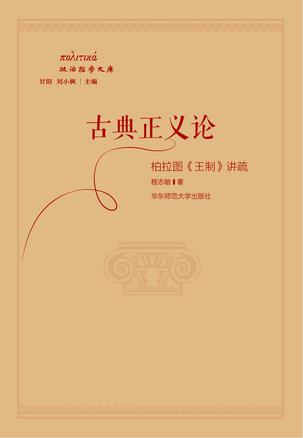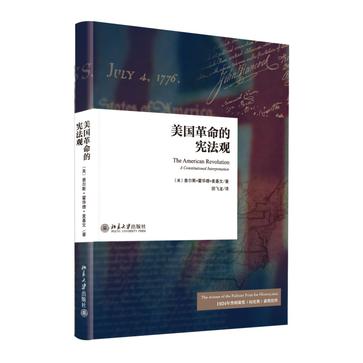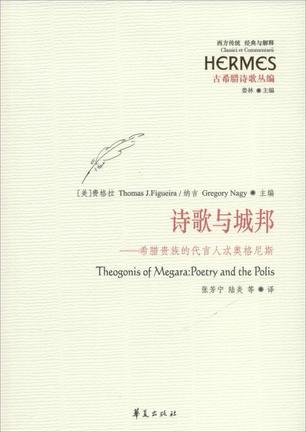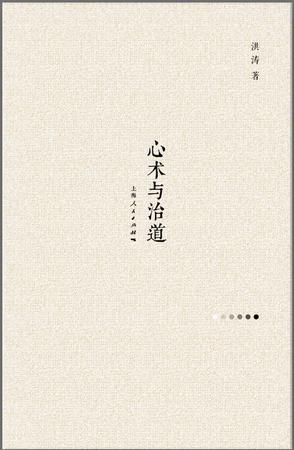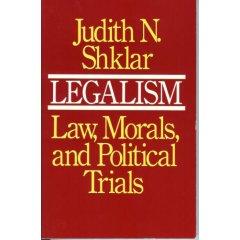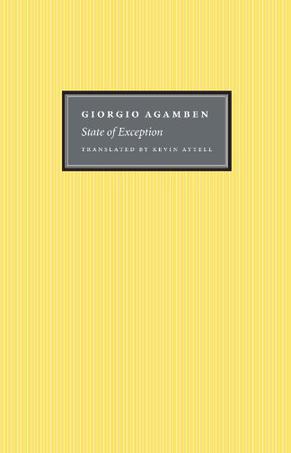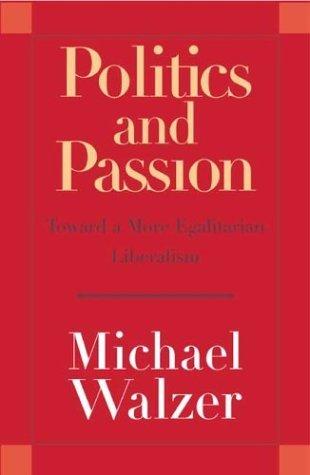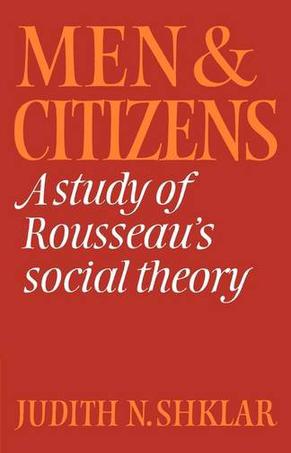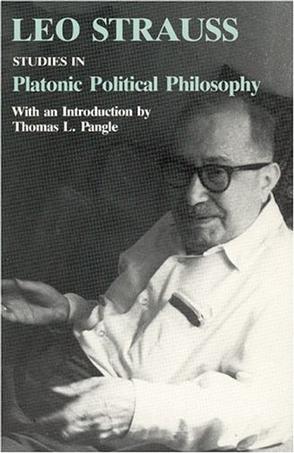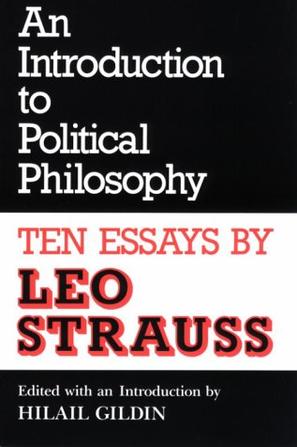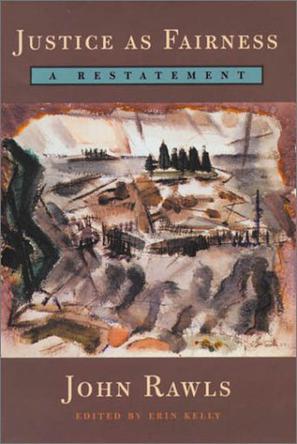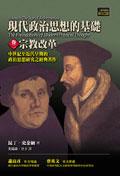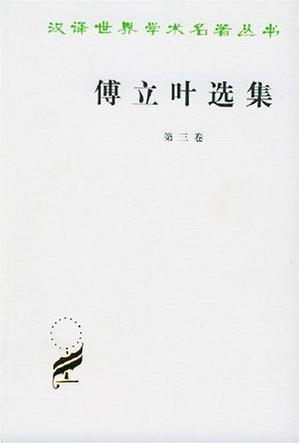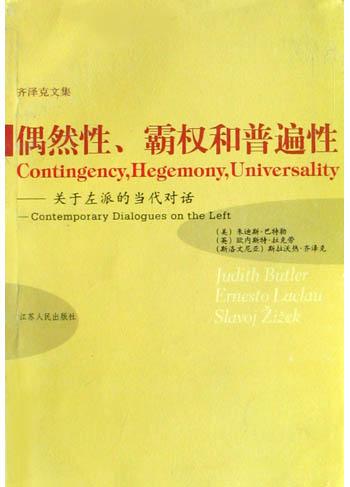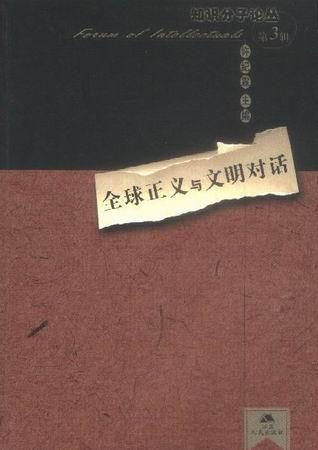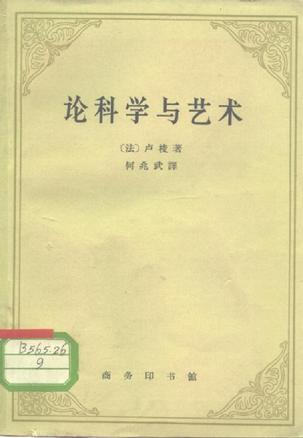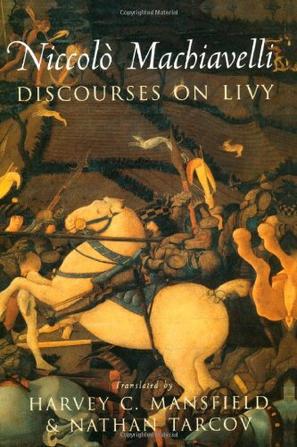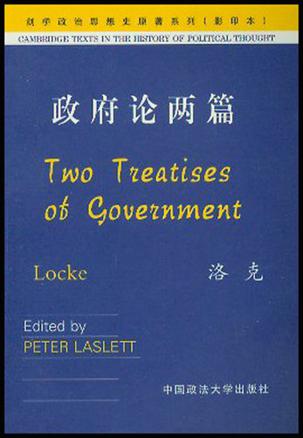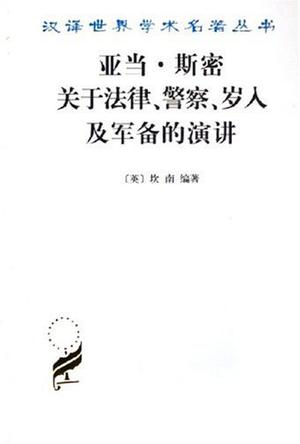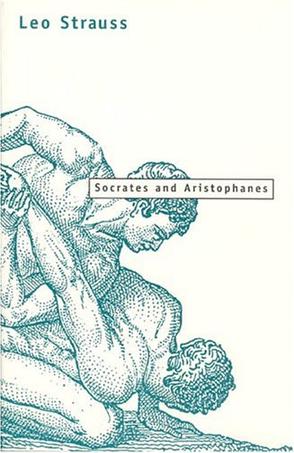欢迎来到相识电子书!
标签:政治哲学
-
古典正义论
本书选取的研究对象是柏拉图的《王制》,这部著作被公认为西方政治哲学的第一经典,古典政治哲学几乎所有的思想和范畴在其中都有非常深入的探讨。 正如本书竭力要证明的那样:与现代“正义论”不同,古希腊的“正义”(主要)不是“论”,而是“法”和“行”。其余诸如德性、法律(如惩罚)、政治(如权利、敌友)、技艺、利他、幸福等等范畴,都可以在正义的框架下讨论,都寓于柏拉图的《王制》之中(当然也需要参考亚里士多德等人的著作)。 -
美国革命的宪法观
1776年美国独立革命是美国史的枢纽性议题。为什么“同文同种”的北美白人殖民者会集体反叛英国议会和国王?为什么光荣革命确立的议会主权在北美殖民地不管用?为什么英国对北美长期的“轻徭薄赋”并没有换取政治忠诚?美国在革命之前经历了与英国议会怎样的宪法斗争?美国革命揭开了英国本土与殖民领地在大英帝国宪法理解上的何种分歧? 这些问题曾经长期困扰美国宪法学界和史学界。麦基文教授不避艰难,深入美国革命前的宪法斗争细节,探寻美国革命的思想动因和宪法先例,破解了大英帝国形成早期的宪制密码及其缺陷。 本书曾获1924年普利策奖(历史类)。 -
诗歌与城邦
《诗歌与城邦》是关于古希腊诉歌诗人忒奥格尼斯的研究文集。 忒奥格尼斯,古希腊诉歌诗人,出生在麦加拉,生活年代大约在公元前6世纪的中晚期,是古希腊诗史上著名的信念坚定的贵族分子。忒奥格尼斯生活的时代,民主政制逐渐兴起,传统的王权和贵族政制日渐凋零。许多城邦已经逐渐建立起以民众为政治主体的政权,在忒奥格尼斯的母邦麦加拉,民众也获得了政治权力。而在忒奥格尼斯看来,民主政制导致的根本问题在于正义和礼法的缺失,也就是高贵之物的丧失。今人能够看到的忒奥格尼斯诗作的最早抄本已经是公元10世纪的编本《忒奥格尼斯集》,这些诗作是否全都出自忒奥格尼斯,很难说得清。今天忒奥格尼斯诗歌研究的一大主题就是:《忒奥格尼斯集》究竟如何形成,如何编纂为今日的版本。其实,早期的《忒奥格尼斯集》本来就是“用于教育的目的”,这就是说,无论后世版本的状况如何,忒奥格尼斯的诉歌在古代世界一直用于教育,用于培养良好的贵族品性。《诗歌与城邦》这本文集出版于30年前,收录了九篇论文和两篇附录文章,是目前西方学界最成熟的忒奥格尼斯研究成果。文集脱胎于1981年哈佛大学举办的忒奥格尼斯学术研讨会,篇中论文提供了大量关于忒奥格尼斯本人和《忒奥格尼斯集》的年代、文本的详细考证。 -
心术与治道
本书论题,涉及战国末世和西汉时期的思想。我以为在此期间形成的思想对于中国思想史非常重要,某种意义上,可以说深刻影响了此后两千年的政治生活。但是,长期以来,这一时期的思想的复杂性似乎没有得到充分认识。在此,我只想通过某一些特定视角作一点努力,以期有助于对这一复杂性的全面理解。本书集中讨论一前一后两个人物:一个是生活于战国末世的荀子,另一个是生活于西汉中期的司马迁。荀子身前不算得志,其思想在西汉却盛极一时;司马迁于逆境中完成了《史记》,目的为承继古代王官之学。可以说,前者开来,后者继往。由荀子,或许可见“古”如何变出“今”;由司马迁,或许可见“今”如何持守“古”。而在对“孔子诛少正卯”这一故事的记载上,两人发生了重合。他们的合与分,颇能使我们窥见于这一定型期思想中的内在张力。 -
Legalism
Incisively and stylishly written, this book constitutes an open challenge to reconsider the fundamental question of the relationship of law to society. -
State of Exception
Two months after the attacks of 9/11, the Bush administration, in the midst of what it perceived to be a state of emergency, authorized the indefinite detention of noncitizens suspected of terrorist activities and their subsequent trials by a military commission. Here, distinguished Italian philosopher Giorgio Agamben uses such circumstances to argue that this unusual extension of power, or "state of exception," has historically been an underexamined and powerful strategy that has the potential to transform democracies into totalitarian states. The sequel to Agamben's "Homo Sacer: Sovereign Power and Bare Life, State of Exception" is the first book to theorize the state of exception in historical and philosophical context. In Agamben's view, the majority of legal scholars and policymakers in Europe as well as the United States have wrongly rejected the necessity of such a theory, claiming instead that the state of exception is a pragmatic question. Agamben argues here that the state of exception, which was meant to be a provisional measure, became in the course of the twentieth century a normal paradigm of government. Writing nothing less than the history of the state of exception in its various national contexts throughout Western Europe and the United States, Agamben uses the work of Carl Schmitt as a foil for his reflections as well as that of Derrida, Benjamin, and Arendt. In this highly topical book, Agamben ultimately arrives at original ideas about the future of democracy and casts a new light on the hidden relationship that ties law to violence. -
Politics and Passion
Liberalism is egalitarian in principle, but why doesn’t it do more to promote equality in practice? In this book, the distinguished political philosopher Michael Walzer offers a critique of liberal theory and demonstrates that crucial realities have been submerged in the evolution of contemporary liberal thought. In the standard versions of liberal theory, autonomous individuals deliberate about what ought to be done—but in the real world, citizens also organize, mobilize, bargain, and lobby. The real world is more contentious than deliberative. Ranging over hotly contested issues including multiculturalism, pluralism, difference, civil society, and racial and gender justice, Walzer suggests ways in which liberal theory might be revised to make it more hospitable to the claims of equality. Combining profound learning with practical wisdom, Michael Walzer offers a provocative reappraisal of the core tenets of liberal thought. Politics and Passion will be required reading for anyone interested in social justice—and the means by which we seek to achieve it. -
Men and Citizens
This book, first published in 1969, is widely regarded as one of the best studies of Rousseau's thought in any language. In it, Professor Shklar examines Rousseau's central concern: given that modern civilisation is intolerable and a return to the state of nature impossible, how is man to arrange his existence in society? Shklar organises the study around Rousseau's two conceptions of Utopia: the Spartan city and the autonomous family group. She emphasises the importance for Rousseau of psychological factors and shows how, when mediated through his images of authority and use of metaphor, they bring him to his notorious view that man is 'everywhere in chains'. In Shklar's view, Rousseau's conclusion is almost equally pessimistic: the chances are very remote that we can overcome the psychological obstacles to become both men and citizens. -
Studies in Platonic Political Philosophy
One of the outstanding thinkers of our time offers in this book his final words to posterity. Studies in Platonic Political Philosophy was well underway at the time of Leo Strauss's death in 1973. Having chosen the title for the book, he selected the most important writings of his later years and arranged them to clarify the issues in political philosophy that occupied his attention throughout his life. As his choice of title indicates, the heart of Strauss's work is Platonism--a Platonism that is altogether unorthodox and highly controversial. These essays consider, among others, Heidegger, Husserl, Nietzsche, Marx, Moses Maimonides, Machiavelli, and of course Plato himself to test the Platonic understanding of the conflict between philosophy and political society. Strauss argues that an awesome spritual impoverishment has engulfed modernity because of our dimming awareness of that conflict. Thomas Pangle's Introduction places the work within the context of the entire Straussian corpus and focuses especially on Strauss's late Socratic writings as a key to his mature thought. For those already familiar with Strauss, Pangle's essay will provoke thought and debate; for beginning readers of Strauss, it provides a fine introduction. A complete bibliography of Strauss's writings if included. -
Justice as Fairness
This volume originated as lectures for a course on political philosophy that Rawls taught regularly at Harvard in the 1980s. In time the lectures became a restatement of his theory of justice as fairness, revised in light of his more recent papers and his treatise Political Liberalism (1993). John Rawls offers a broad overview of his main lines of thought and also explores specific issues never before addressed in any of his writings. Rawls is well aware that since the publication of "A Theory of Justice" in 1971, American society has moved farther away from the idea of justice as fairness. Yet his ideas retain their power and relevance to debates in a pluralistic society about the meaning and theoretical viability of liberalism. This book demonstrates that moral clarity can be achieved even when a collective commitment to justice is uncertain. -
現代政治思想的基礎(卷二):宗教改革
本書曾獲1979年英國沃爾森史學獎(Wolfson Prize),並名列《泰晤士報文學評論副刊》近50年來最具影響力的一百本書之一。「一本精彩的著作……豐富闡述思考中世紀後期如何朝向正當性思考、人文主義修辭學、宗教爭論,以及一種史料編纂的改變,需結合那些嶄新的想法習性和語詞敘述的構成,我們稱之為國家的觀念。」──《政治理論》(Political Theory) 本書追溯了13世紀後期至16世紀結束,即中世紀向近代過渡時期,西方政治思想的發展歷程,是研究這段時期的經典之作。全書共分兩卷,分別探討「文藝復興」和「宗教改革」時期,歐洲主要政治思想的學說與流派之淵源和基本內容,以及對近代政治思想的影響。我們現在早已耳熟能詳的一些政治概念,如國家、主權、社會契約和個人的權利等,非但不是與中世紀的政治思想截然相對的,而且是由當時的一些經院學者、人文主義者、羅馬法學家、天主教神學家和宗教改革理論家所率先提出。這些帶有明顯的近代色彩的政治理論觀點,在批判性的吸收和繼承中世紀理論遺產之中,逐漸產生變革而洗去了封建和宗教的色彩,最終孕育了近代西方龐大政治思想體系的重要內容。 史金納向來主張,政治思想不能只侷限在研究著名思想家的一些重要著作,應該拓寬視野,考察這些思想家及其學說之特定而具體的歷史時空環境,這即是他獨到的研究方法,注重「文本」(text)與「脈絡」(Context)之間的關聯,才能真正理解政治思想出現的社會背景與實質意義。本書就是他研究和解釋歷史文本之法的最佳示範說明。 -
偶然性、霸权和普遍性:关于左派的当代对话
葛兰西霸权观念的当代遗产是什么?既然普遍性的虚假版本已被彻底批判,那应该如何去重新阐述它?在这一彻底颠覆性的项目中,巴特勒、拉克劳和齐泽克这三位在国际学术中以激进风格著称的当红明星就当代哲学和政治学的中心问题进行了对话。他们的论文按照三组彼此对应的文章进行编排,涉及黑格尔在当代批判理论中的遗产、文化多元主义的理论困境、普遍性与特殊性之间的争论、全球化经济体系中左派的战略,以及后结构主义和拉康的精神分析对批判的社会理论的价值等等问题。在本书中,三位大家在尖锐地批评另两位的思想的同时奋力为自己的观点辩护。激烈的争论,严密的论证,精彩的辩护,大胆的揭露……本书充满了火药味。 -
全球正义与文明对话
《全球正义与文明对话》围绕全球正义的哲学论述、跨文明视野中人权与正义原则、民主与和平的政治哲学三个专题,收入论文15篇。 -
Discourses on Livy
The Discourses on Livy (Discorsi sopra la prima deca di Tito Livio, Discourses on the First Decade of Titus Livy) is a work of political history and philosophy composed in the early 16th century by the famed Florentine public servant and political theorist Niccolò Machiavelli (1469-1527), best known as the author of The Prince. Where The Prince is devoted to advising the ruler of a principality, i.e., a type of monarchy, the Discourses purport to explain the structure and benefits of a republic, a form of government based on popular consent and control. It is considered almost unanimously by scholars to be if not the first, then certainly the most important, work on republicanism in the early modern period.[1] Machiavelli dedicated this work to Zanobi Buondelmonti and Cosimo Rucellai, two of the greatest exponents of the Orti Oricellari in Florence, where aristocratic young people met in order to discuss politics, art and literature. -
政府论两篇
政府论两篇,ISBN:9787562023753,作者:英约翰·洛克(John Locke)著 -
亚当·斯密关于法律、警察、岁入及军备的演讲
亚当·斯密是十八世纪英国的著名经济学家,资产阶级古典政治经济学的杰出代表。古典政治经济学是马克思主义的三个来源之一,而本书反映的正是亚当·斯密早期的经济思想。抓住了当时英国经济生活中的基本问题,反映了资本主义发展的利益和要求。当然,这时斯密的经济思想还不成熟,许多政治经济学原理还不明确,甚至没有考察。但是,斯密研究经济问题的总方向,他的经济学说的中心思想已经奠定了,并对价值、货币、资本、利息等政治经济学范畴作了一些分析和说明。这一切,在他的代表著作《国民财富的性质和原因的研究》得到了大大的发展和丰富。 -
Socrates and Aristophanes
In one of his last books, Socrates and Aristophanes, Leo Strauss's examines the confrontation between Socrates and Aristophanes in Aristophanes' comedies. Looking at eleven plays, Strauss shows that this confrontation is essentially one between poetry and philosophy, and that poetry emerges as an autonomous wisdom capable of rivaling philosophy. Summary: How the other half lives This book follows the typical Strauss pattern: In the first few pages he makes a blanket statement (in this case, Aristophanes is a reactionary; in Thoughts on Machiavelli it was, Machiavelli is evil), then follows it up will a torturous and nuanced analysis of the thinker's ideas until you begin to wonder: In what way is Aristophanes a reactionary or Machiavelli, evil. He tells you the picture is black and white, then he brings you in so close that it all turns gray. Be this as it may, Plato's Symposium and Republic (especially Republic X where Socrates bans the poets from his just city) tells only half the story (philosophy's side). In this book Strauss tells the other half (poetry's side). In essence, Symposium and Republic (and to a certain extent, Phaedo) make up Plato's case as to why philosophy should be the teacher of public morality instead of poetry. Strauss' book takes Aristophanes' eleven existing plays and presents his opposing arguments, his defence of poetry and attack on philosophy. Interesting read for we who sit the other side of Plato's Republic (i.e. Medieval Christendom, where there is no longer any contest between Thomas Aquinas and Dante Aligheri). Summary: The madness of war While the introduction, conclusion and first essay (on "Clouds") is apparently anchored in an argument between philosophy and poetry, the further Strauss leaves "Clouds" behind, the more we see through his close reading of the plays, in a way we never do from the younger Plato, the cultural disintegration of Athens under the assault of the war. Euripides, not Socrates, emerges at the real opponent and comedy triumphs over both tragedy and philosophy as the best teacher. This brings us close to an historical experience so often lost in classical studies, particularly in political philosphy, the madness in the streets of Athens and the fully-formed, transcendent characters which emerge with the comic treatment. These are not the spoiled aristocratic youth clustered around Socrates or the sophists (Plato's real enemies - not the poets). These are the men and women at the corner bar. This book makes you wish Strauss had done a "Hobbes and Shakespeare." His evident enjoyment of his subject leaks through with increasing intensity the further he seems to drift from his dichotomy. Could it be Strauss wished to remind his followers, ever so gently, to, like, lighten up and read a good comedy, even in the Greek some labor so hard to acquire? The book at least raises two questions: how did the bold Aristophanes avoid capital punishment? why did the ironic, diplomatic Socrates accept his? Summary: insightful...helpful I had to write a term paper for my critical thinking class in college, and it was on Aristophanes. The topic, more specifically, explored how Socrates' fate would have been different, had Aristophanes not written the play "The Clouds." This book was helpful in explaining the play, Aristophanes, and his relationship with Socrates. If you're studying anyhting of this nature, or are just interested in the two men mentioned in the title, I strongly recommend that you read it.
热门标签
下载排行榜
- 1 梦的解析:最佳译本
- 2 李鸿章全传
- 3 淡定的智慧
- 4 心理操控术
- 5 哈佛口才课
- 6 俗世奇人
- 7 日瓦戈医生
- 8 笑死你的逻辑学
- 9 历史老师没教过的历史
- 10 1分钟和陌生人成为朋友

